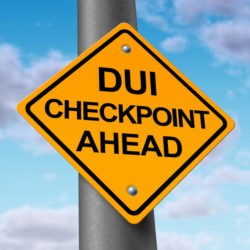Maintaining continuous insurance, avoiding multiple traffic violations, and completing a defensive driving course can all contribute to your SR-22 eligibility. Understanding the nuances of SR-22 requirements is vital for safeguarding your driving privileges. The implications of license suspension and DUI convictions can greatly impact your insurance needs. To navigate this complex landscape effectively, knowing the specific criteria in your state is indispensable. What steps can you take to guarantee compliance and minimize costs?
Key Takeaways
- Maintain continuous auto insurance coverage to avoid further violations and ensure eligibility for SR-22 filing.
- Address all outstanding traffic violations promptly to minimize penalties and demonstrate responsible driving behavior.
- Be aware of your state's specific SR-22 requirements, including filing duration and liability coverage limits.
- Ensure all paperwork is accurately completed and submitted on time to facilitate a smooth SR-22 filing process.
- Consult with insurance providers experienced with SR-22 to find the best rates and coverage options for your situation.
Understanding Traffic Violations and Their Impact on SR-22 Eligibility

When you're pulled over for a traffic violation, the consequences can extend beyond just a ticket; they might also impact your eligibility for SR-22 insurance. Certain offenses, like DUI/DWI or reckless driving, can lead to a requirement for SR-22 because they signify serious risks. Accumulating multiple traffic violations in a short period or being caught driving without insurance also triggers this need. If you've had an accident while uninsured, you'll likely be required to file an SR-22 to regain your driving privileges. Understanding these violations helps you grasp how they affect your insurance status and costs, emphasizing the importance of responsible driving to maintain eligibility and keep your premiums manageable. Additionally, SR-22 insurance is specifically designed to help high-risk drivers demonstrate financial responsibility. Failing to comply with minimum required auto insurance coverage can further complicate your situation and extend your SR-22 requirement.
License Suspension and the Need for SR-22 Insurance
If your license gets suspended, you may face the requirement of obtaining SR-22 insurance to regain your driving privileges. Understanding the implications of an SR-22 can help you navigate this process:
- Definition: An SR-22 proves you meet your state's minimum auto insurance requirements.
- Reinstatement: You'll likely need to file an SR-22 to demonstrate financial responsibility for license reinstatement.
- Coverage Maintenance: Verify you maintain continuous coverage; lapses can lead to further suspension.
- State Variability: Requirements and filing durations differ by state, so check your local regulations.
The Role of DUI/DWI Convictions in SR-22 Requirements
DUI and DWI convictions greatly impact your insurance requirements, often mandating the need for an SR-22 form to regain your driving privileges.
These convictions categorize you as a high-risk driver, triggering the necessity for this specific insurance. Depending on your state, the duration of the SR-22 requirement can range from 3 to 5 years, and some states may impose higher liability coverage.
Additionally, SR-22 insurance typically comes with increased costs due to the associated risks. Not all insurance providers offer SR-22 policies, so it's important to shop around for coverage.
Consequences of Driving Without Insurance

Driving without insurance can lead to severe legal and financial repercussions that far outweigh the momentary savings of forgoing coverage. Here are some consequences you should be aware of:
- Fines: Depending on your state, fines can range from $100 to $5,000.
- License Suspension: Most states will suspend your driver's license if you're caught driving uninsured.
- Vehicle Impoundment: Your vehicle may be impounded until you provide proof of insurance and pay any fines.
- Increased Insurance Rates: Being classified as a high-risk driver can lead to considerably higher insurance premiums in the future.
These penalties not only affect your wallet but can also impact your driving record and privileges long-term.
Always verify you're properly insured.
Meeting Higher Liability Limits for Specific Cases
When facing the need for SR22 insurance, it's crucial to understand that certain situations require you to meet higher liability limits. States vary in their requirements, especially for serious offenses like DUI or major accidents, which often demand higher coverage than standard infractions.
For instance, Florida and Virginia use FR-44 insurance post-DUI, necessitating elevated limits. While SR22 verifies minimum liability, opting for higher limits offers greater protection against potential financial burdens.
Keep in mind that these higher limits typically lead to increased premiums due to the perceived risk. Choosing a company that specializes in high-risk drivers can help mitigate some of these costs while ensuring you remain compliant with state regulations.
Conclusion
Steering the road to SR-22 insurance eligibility can feel like guiding through a dense fog. By maintaining continuous coverage, avoiding traffic violations, and understanding your state's requirements, you can clear the path ahead. Think of defensive driving courses as headlights, illuminating potential pitfalls. With the right guidance from an experienced insurance agent, you'll find a policy that not only meets your obligations but also helps you drive confidently into a brighter, more secure future.


